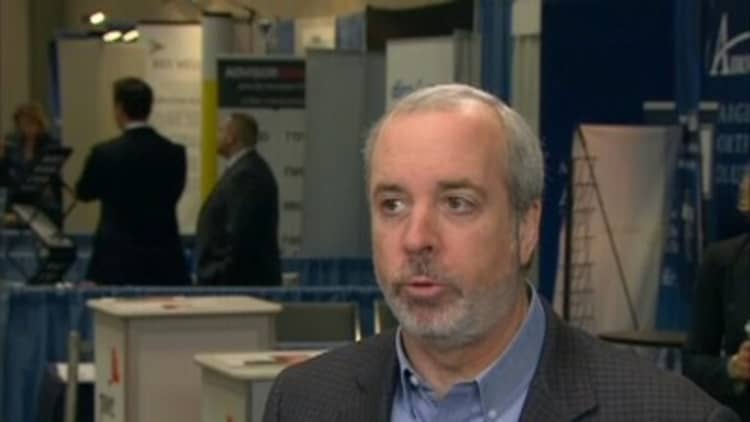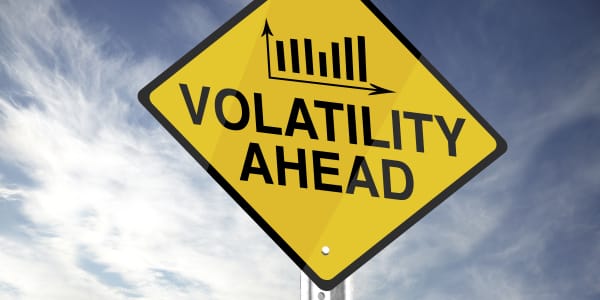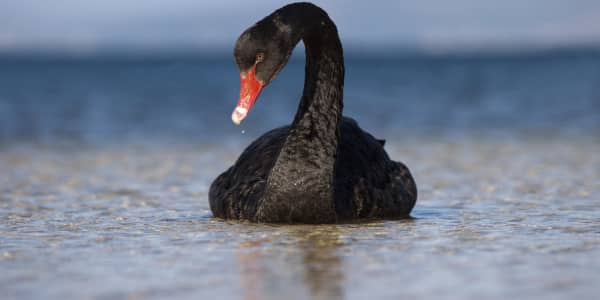Hypothetical investment scenario: Say we have a young investor in their 20s or 30s who has just come into between $10,000 and $30,000—maybe through an inheritance or bonus, maybe through a lawsuit, whatever. The investor wants to sock away the money in one low-cost fund and not even think about it for at least a few decades—never touch, never even look at the ticker on their smartphone "stocks" app on a day the market is tanking. They know all about diversification and asset classes but are adamant: one fund, and one fund only.
We put this question to financial advisors—asked them for their "Desert Island Funds," specifically—and we've included their email responses below (edited). The variety of responses—they didn't all select a low-cost Vanguard S&P 500 or extended market index fund (in fact, none of them did)—was surprising and noteworthy (they even threw in their Desert Island Discs for good measure).
They also asked us to include the following "buyer beware" disclaimer, which is certainly important for any investor.
Caveat emptor: No single fund is an optimal surrogate for a basket of well-diversified asset-class targeted funds, a feat that can be accomplished with much less money or effort than one might think.
(Read more: How to pick an ETF? Hint: Not on cost)
1. Tim Maurer, vice president, Financial Consulate
While it would not necessarily be intellectual suicide to recommend that a young person simply sock away everything they have in an S&P 500 index fund with the lowest possible expenses, a great deal of benefit can be found with a few slight tweaks to that strategy. Consider, therefore, Dimensional Fund Advisors' DFA Global Equity Portfolio (DGEIX), which adds a few important benefits for the young investor:
1. As a global fund, it is neither entirely domestically or internationally oriented, including both North America and the rest of the globe. Especially with a 30-plus-year time horizon, the addition of international exposure is priceless if not vital. (China's not a maybe, baby.)
2. It is diversified across various market capitalization asset classes—complementing large-cap with small- and midcap offerings.
3. This fund also features Dimensional Fund Advisors' small-cap and value-tilt, based on the Nobel Prize-winning work of Eugene Fama, showing that a) very little benefit is added by paying stock pickers to beat the market and b) tilting your portfolio toward small-cap and value stocks has offered investors a historical premium.
However, there's one downside to this fund, and it's a big one—it's not going to be universally available, as investors are likely only to have access to the fund through institutional channels, like fee-only financial advisors or a minority of 401(k) plans. But since the Desert Island Fund scenario is already couched in a hypothetical scenario, this would—hypothetically—be a great choice for an aggressive young investor, if he or she only had one bullet in his or her six-shooter.
DFA Global Equity Portfolio management fee: 0.30 percent
(Morningstar category average fee is 1.34 percent.)
Maurer's Desert Island disc: Obviously, the answer is "Led Zeppelin III."
(Read more: 5 tax-advantaged investments for 2014)
2. Peter Dixon, senior advisor, Financial Council
It got me thinking about the who (not the rock band) behind the question rather than the what. That is, if I could pick only one and not diversify, who in the funds world would I trust to oversee my money during this very long time frame?
If it were only one, I'd want the people to have my (the shareholder's) best interest in mind, and I'd want to be confident that they would earn results over time. I wouldn't go with just low cost (although my choice is low cost) and an index, since I don't have anyone proactively making decisions with my money while I'm deserted on this island!
With that said, immediately what comes to mind is the Capital Group and the Investment Company of America (AICFX—institutional/no-load share class). A team of people not beholden to quarterly profits, focused on a process that has been in place for many decades, with global intellectual capital second to none. It's a fund that has stood the test of time since the 1930s and has proven solid results. So if it were one and one only, that's where I'd entrust those dollars.
Investment Company of America management fee: 0.67 percent
(Morningstar category average fee is 1.13 percent.)
Dixon's Desert Island disc: Everyone knows that The Who's "Quadrophenia" is the best choice.
(Read more: 2014 top trends in mutual fund investing)

3. Bert Livingston, independent financial representative, National Financial Services Group
Certainly, I am not a guru or money manager, but I have 35 years of experience in the financial world, and at age 61 I have personally and professionally seen the benefits of health-care advances and demographic shifts. My mother lived to age 95, but her first heart bypass was at age 67 and last one was at age 91 … and they did a double bypass with the heart still beating ... out of the hospital in six days … then lived to age 95!
A concentrated health sciences fund like Eaton Vance Worldwide Health Sciences Fund (ETHSX.LW—no-load share class) just makes sense demographically, and while a health sciences index might be more efficient, the medical research done by the money managers there has reduced volatility substantially. Yes, the Desert Island folks will hold long term, but when that term ends, volatility still needs to be taken into consideration, lest the investor becomes afraid, since his $30,000 is now as much as $600,000 at 10.5 percent return assumption at year 30 (not a prediction) and not taking into consideration the tax bracket of that island getaway!
The beta is .84, and the return in 2008 was negative 7 percent, I believe. Not anywhere near the negative 37 percent of the S&P 500 [the MSCI World Health Care Index was negative 21 percent in 2008]. Nothing like getting off the island with a fortune and having it disappear when reaching hard land! She/he will be age 40–50, I presume, and in need of medicine and care, too … helping the fund grow. It is a concentrated fund as well, just 38–40 stocks, so lots of conviction and research dedicated to their best ideas.
[Bert Livingston couldn't pick just one, failing the Desert Island Fund test, though providing one more interesting idea worth sharing.]
The Hennessey Gas Utility Index Fund (GASFX) is a theme on the burgeoning energy renaissance in America and perhaps the world, as natural gas is now in its initial growth stage. Yes, it might be obsolete in 30 years due to science, the opposite of the Health Sciences Fund—unless everything is cured by then—but amazingly, energy growth has this eternal feeling. It has been said that "the meek will inherit the Earth, but NOT the mineral rights." So the ambulance will be operated on natural gas, and the hospital will be heated by natural gas … perhaps the medical flight … if needed.
Eaton Vance World Health Sciences fund management fee: 1.39 percent
(Morningstar category average fee is 1.47 percent.)
Hennessey Gas Utility Index Fund management fee: 0.80 percent
(Morningstar category average fee is 1.29 percent.)
Disclaimer: Livingston owns both funds in his portfolio.
Livingston's Desert Island disc: (while Bert needs two funds, he only needs one song) Israel "IZ" Kamakawiwo'ole's "Over the Rainbow"
—By Eric Rosenbaum, CNBC.com





